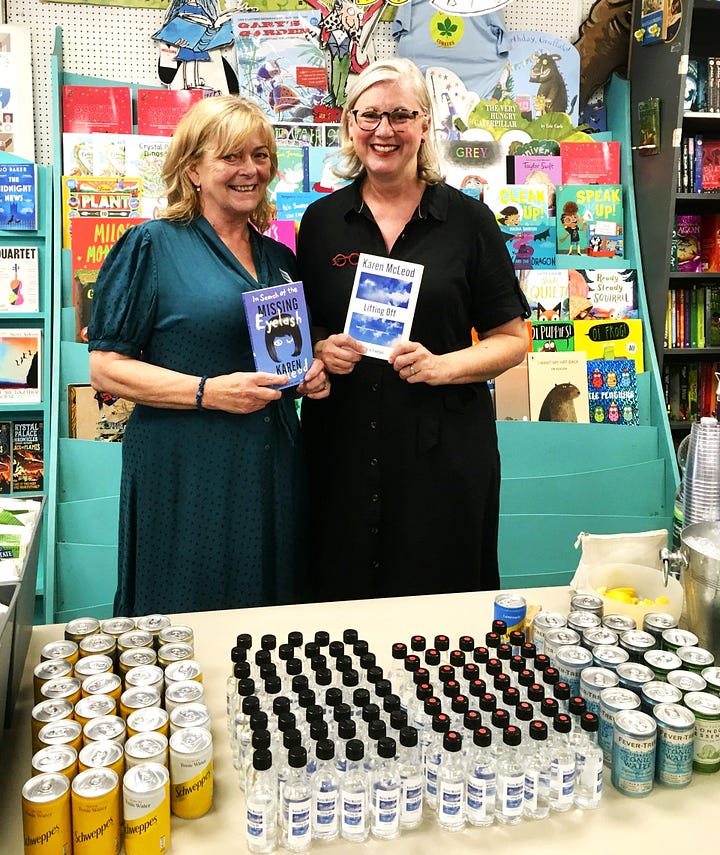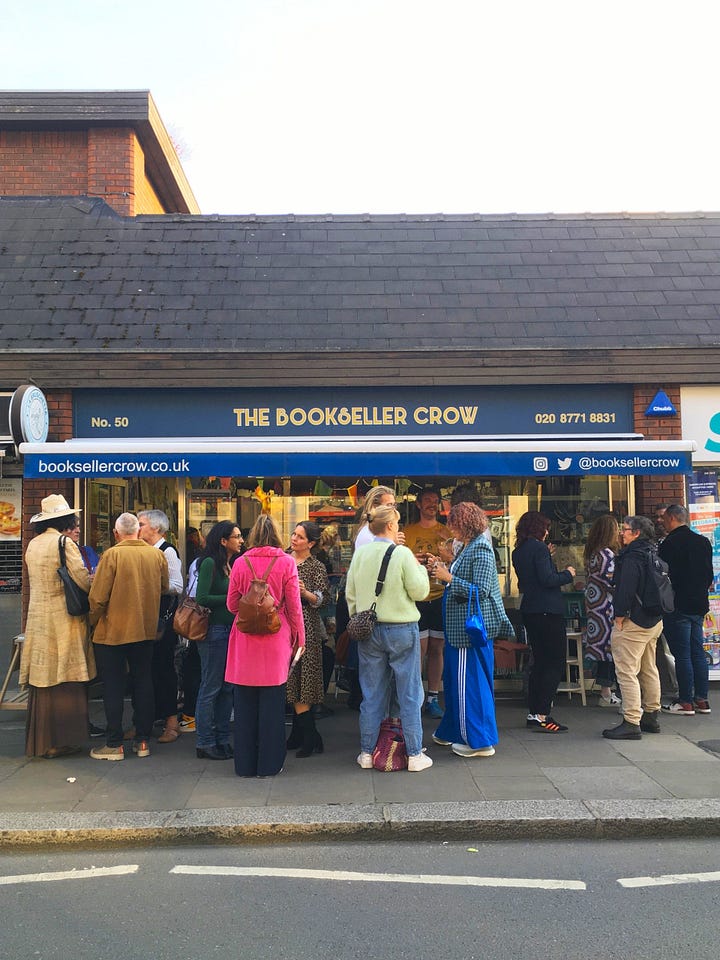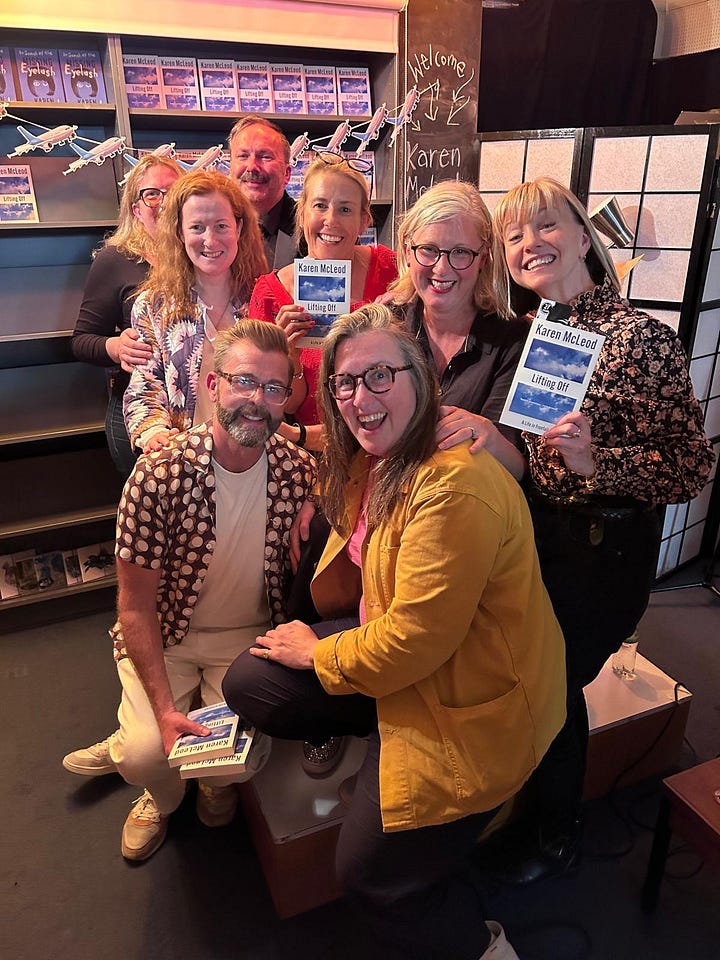Dear Friend,
This week Sainsbury’s were chucking out loads of their flowering garden plants. The plants had been kept inside, by the tills, away from any natural light. As I was leaving, I suggested they might want to donate some to my allotment to which the shop assistant asked, ‘You want these?’
‘Yes,’ I said. ‘I can save them.’
‘Take what you want,’ he shrugged.
To be real, I didn’t actually know if the plants could be saved. They were pretty floppy, but my desire to do something with them overrode all that. I couldn’t bear the idea that these plants would be tipped into bins after a short life without any sun. I only had my shopping trolley, which was already piled high with allotment strawberries and spinach on top of my usual shop. There were at least fifty plants needing rescuing. While I decided which of the most living I should wheel home, I lifted them up for a closer inspection.
Of course, they were as light as feathers which was shocking. No one had watered them for days. I found this astonishing, how alive things go unnoticed. While I was picking the dying from the dead, another woman lingered, watching the scene unfold. As I exited, three plants balanced on top of my eggs, I wondered if she’d dared asked for some plants too. I sensed a fellow saviour in her, or maybe a yellow bargain sticker obsessive ( I am both). I worried that I was putting my efforts, my energy, into the wrong place.
Arriving home, as is customary, I pulled off my bra from beneath my t-shirt. I stood by the bedroom window, looking down onto the communal gardens. On top of the car port roof was a pool of rainwater which hadn’t been there for some time. In it was a pigeon having a wing wash. And on the other side, in the corner, a sleeping fox was curled up like a croissant.
Amongst the wastefulness of supermarkets, I reminisced how a year ago this week, my memoir, LIFTING OFF was published. There was a big party at Bookseller Crow on the Hill. My first novel, In Search of the Missing Eyelash had also been republished by Muswell Press.
The Bookseller Crow bookshop, our bookshop, has just turned twenty-eight years old. There are times when I know things are so tough for the owners I can’t see how things will carry on. But they do, and they have, and we’re still here.
I don’t really feel like celebrating but I am. Lifting Off took a long time to come together and now has sold well and the publishers are pleased. I have had many opportunities arise since it came out. One of the best being I get to teach on an Arvon course in a couple of weeks. While I was enjoying a glass of wine an old friend rang me to say how she is thinking of building a bomb shelter in her garden in Bromley. Had I considered building one yet? And here I am, worrying about the flowers. I said no, I am not digging any more than I have to down the allotment.




I remember the day a box full of copies of LIFTING OFF arrived. My first port of call was to take a copy down to show Mum. She was in her red reclinable chair which was where she sat all day.
‘You’re so clever,’ she’d said. ‘So much cleverer than me.’
And I couldn’t bear this. I never wanted to supersede her in any way. I always felt we were equal; I wanted us to remain the same. Joined up. Now she has gone I have realised how so much of what I have done has been for her praise, her laughter.
‘You told me stories, Mum.’ I said. ‘You showed me how to entertain people. You taught me what a punchline was, how it falls and ends a story.’
‘Read me some of the book,’ she said, inspecting the clouds on the cover. Knowing full well how the book contained so much of her and Dad’s lives, so much which went unsaid between them and me, I begin to read a few sentences from the blurb on the back.
‘“Told with the wit and verve that characterised her debut novel, Karen McLeod’s account of flying as cabin crew offers a fascinating insight into the profound impact of long haul life.”’
I stopped there. I did not mention the next line about how I’d come out as a lesbian and been advised that, in the late 90s, it was not okay to be a lesbian and a stewardess. That was too complex now, with Mum as she was.
She clasped her fingers together, and asked for more. I went into a bit of freewheeling storytelling, not what was written in the book, but old stories we liked to reminisce about together. The story of when we went to Arizona and she got chatted up by a man in a Stetson on a trip to the Grand Canyon. She laughed, the story comforting and familiar. I continued, picking out the delicious details of that time - how she’d got in the hot tub with the crew, and how a steward came into our hotel room on roller blades singing ‘Starlight Express’ for her. But as I was finishing the story, I noticed she’d turned back to the TV. I was talking to the Mum who she once was.
In the days after Mum died, my allotment was the only place I thought of visiting. She went six months ago this week. Lifting up those featherlight plants in Sainsbury's reminded me of the night I’d lifted mum onto to the laminate flooring before trying to save her. She was so airy; so much of her had already disappeared.
Six months is a long time, yet no time at all. It is long enough for the grief to have moved from aching my jaw, to catching my throat, to throwing out my pelvis, tightening my hips and now, causing havoc with my teeth. It is long enough for people to say comforting things like, ‘I suppose it’s still early days’ while others ask, ‘what have you done with her ashes?’ Some friends still send cards, or take me to lesbian bars. Others who really know ask if I am ‘out of hibernation’ yet. There are those who haven’t said anything, and those that send blowing kiss emojis out the blue.
I have met so many people, usually women, who chat and explain that even ten/twenty years after losing their mum, it is still so hard. Recently at the allotment, my neighbour Neves came over to where I was weeding out the tiny growths which love to imitate the rocket.
‘How are you?’ she asked, not in a casual hello kind of way, but more pointed. I immediately began to cry. When I’d quickly pulled myself together, I found I could speak.
‘It’s so in my body,’ I said. ‘My teeth, my back, all the cortisol is running amock. Grief lives in the body doesn’t it? It’s not just the mind. It feels like it is moving about. You know?’ I was blurting, speedily grasping for words.
‘I know. It’s hard,’ she said. Pointing at her glasses, she added, ‘Look. This.’
‘Your eyes?’ I said.
‘Yes,’ she nodded. ‘Overnight. Mum dies and poof. My eyes change and I need glasses.’
Later she hands me a bag of mixed lettuce leaves to take home. ‘Sorrell,’ she said, ‘Have you tried it?’ And at that particular moment I hadn’t. It was such a simple gesture of kindness and generosity. It was new, such a small new thing.
After a few days the uncared plants were alive and ready to be planted outside. Sometimes it’s all we can do.
Keep writing, write often.
Love,
Karen xxx
P.S. Thank you to my new subscribers, especially those who have decided to support me with hard earned cash. You keep me in so much more than ink and paper. Your support is never taken for granted. If you enjoy my Short Tall Letter you can subscribe for a fiver a month, support my writing, and have access to all my life writing from the beginning of time, and special one off films and sound pieces in The Velvet Room.









Love x
At last I am reading " lift off"...your writing here today reminds me of what, believe it or not, my body has grown a skin or two over now. Less raw, and the grief less alive and rampant. And the memories surface in a much quiter way like those plants that seem glad to live enough to flower. Bravo brave flowers. And here's to courageous writers also! And all who water wilted things.